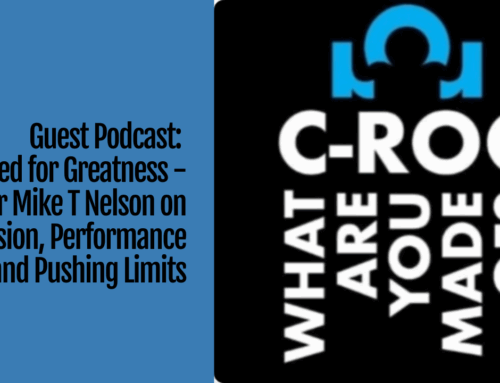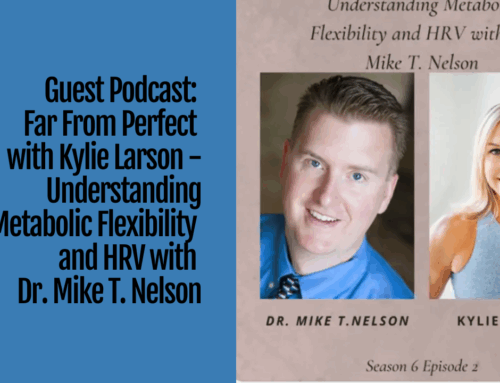*from drrucio.com
My good buddy, Dr. Ruscio interviews me on this his podcast where we talk about
-
-
-
-
- metabolic flexibility
- hypoglycemia
- macro cycling
- and many more metabolism questions
-
Dr. R’s Fast Facts Summary
Big picture take away…
- If you are having a hard time metabolizing a certain food, removing it or lowering intake is probably going to be beneficial.
- There is no universal prescriptive diet/protocol for a “healthy” individual. Stay in tune with your body and how you feel when trying new things.
Metabolic flexibility:
- How well you use carbohydrates
- How well you use fat
- How well you transition back and forth
Heterogeneity of insulin sensitivity, meaning some people process carbs better than others.
- Some sub-analysis suggest that people who are more prone to insulin resistance may only do well on a lower carb diet whereas people who tend to have good or robust ability to process insulin may be able to improve on any type of diet.
Does health increase metabolic flexibility?
- Some studies and clinical practice suggest that when someone increases their health, their metabolic flexibility improves.
- Hypoglycemia – many people suffer fewer bouts of hypoglycemic episodes as their health improves
- Test the boundaries as your health improves vs sticking with a rigid diet and never changing for fear of hypoglycemia
Gain range can be altered if you eat the same all the time:
- One study showed that in healthy individuals that became reliant on using blood glucose – the gain of the system was altered meaning they couldn’t handle low deviation at all. Blood glucose dropped 10-12 points. Subjects experienced massive hypoglycemic symptoms but the number didn’t seem to reflect it.
Evolution of macros
- Start out with lower carb intake – slight restriction of carbs. This naturally eliminates foods that tend to give people problems like FODMAPS and grains.
- Then if you feel good, evolve into a broader diet and try macro-cycling
Who should try macro cycling?
- Qualify yourself:
- Those who can do 19-ish hour fast
- Those who don’t feel they are under a lot of stress
- Oral glucose tolerance test (80 grams of glucose all at once them measure your response)
- Added benefit – body composition could improve
Who shouldn’t try macro cycling?
- People who are very stressed or fatigued – having smaller amounts of carbs and more frequent meals tends to help.
- Those who feel very sensitive to high carb or high fat intake
How to integrate macro cycling – 3 keys
No seasonal variation recommended
- Training days (3 days per week) eat higher carb (200g/day for men roughly)
- Other days, 12-14 hour overnight fast then perform lower cardio in a.m. – fasted. Eat lower carb on these days (100-120g/day – but not less).
- Protein .7 grams per lb of body weight
- Fat 50-70 grams/day minimum
Fasting vs. Ketogenic diet
- If you are moderately healthy and want to work on body comp and overall health and longevity, fasting is a good way to go.
- A longer fast once a week or a longer overnight fast can be very beneficial and is easier than going in and out of ketosis.
Enjoy!
Dr Mike
-
-
-




Leave A Comment